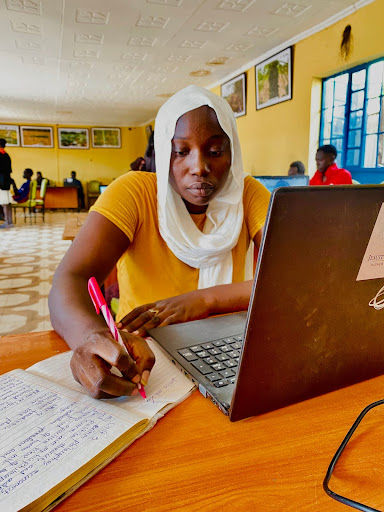Resilience Action International Powers the Future with Solar Minigrid Venture
- MW
- Nov 4, 2020
- 3 min read

11 November 2020
By Delaney Wehn
RAI, a revolutionary nonprofit in Kakuma Refugee Camp, provides refugee-owned startups much needed seed grant money by selling surplus clean energy generated by its solar minigrids.
As head of the organization’s Finance Department, Wycliffe Baraza’s role entails a massive scope of responsibilities, including handling daily accounts and managing the annual budget, annual reports, payroll and audits. This vast amount of responsibility, however, is not the only challenge Mr. Baraza tackles on a regular basis.
Another major hurdle he faces while constructing RAI’s budgets is that most of the funds RAI receives are classified as “restricted funds,” meaning that they can only be used in a narrowly defined and pre-specified manner. While fortunate to receive such funds, these prearranged determinations can make funding innovative, unexpected projects a bit difficult.
Thankfully, RAI’s talented 45-person staff has tapped into a new creative method for generating discretionary funds—all while also promoting earth-friendly clean energy production. This new initiative began with the simple installation of a solar powered mini grid on the roof of RAI facilities, and with ingenuity and an entrepreneurial eye it now has the potential to grow into a major revenue stream for RAI.
The original intention of this effort was to use the minigrid to power the center’s cybercafe, which offers WiFi and computers to RAI’s students and external leasers. “After some time,” Mr. Baraza said, “We realized the amount of power we were generating from that first minigrid was really a lot. We thought, what if we start selling this power to the businesses around the community.” RAI’s staff fortunately found that almost every neighboring business and residence had a desire to be connected to the new clean energy source, as reliable power sources can be difficult to come by in remote parts of Kakuma Refugee Camp. This interest is expected to soon generate profit, as these neighbors are willing to pay for use of the power.
With this strong demand for clean solar power confirmed, Mr. Baraza and his team set out to expand RAI’s power generation capabilities. “We sought more funds and upgraded to a bigger minigrid with 20 kW capacity. That new device has now enabled us to connect with 58 businesses and individuals,” added Mr. Baraza, “And this is only the pilot phase.” Currently, RAI is in the process of analyzing the power load needs of each of its clients in order to determine how many more clients can be brought on. The Finance Department’s projections show that this single minigrid likely has the potential to provide 100 households and 50 businesses with clean solar power, all driving profit growth for RAI.
This incredibly innovative solar grid initiative not only sustainably powers small business growth in Kakuma, but it also empowers RAI to provide graduates of its Small Business Startup and Entrepreneurship courses with crucial seed grant money to launch their small business ventures. Upon course completion, students are encouraged to submit their preliminary business plans, and RAI lends small amounts of money to the business plans deemed most viable. These funds often come from minigrid profits.
Given the success thus far, Mr. Baraza’s team has continued to look toward the future and has many goals for expanding its efforts in 2021. “Our main focus is to elevate the lives of our refugees through the provision of skills and knowledge,” said Mr. Baraza, “This directly results in improved livelihoods, like jobs and building their own businesses.”
One major goal his team has to further this mission is to partner with more large institutions that are offering seed grants to refugees. If able to secure more partnerships with these large lenders, RAI hopes to act as the loan guarantor and distributor, as the organization’s staff personally know those most in need and most likely to not default on their loans. Other major goals for 2021 include registering RAI’s course curriculums with the government and adapting to the post-pandemic learning environment by adopting a Google For Education digital learning account.
Please consider donating today at https://www.resilienceaction.net/donate to help promote RAI’s future initiatives aimed at empowering Kakuma youth to achieve economic and social empowerment.



Comments